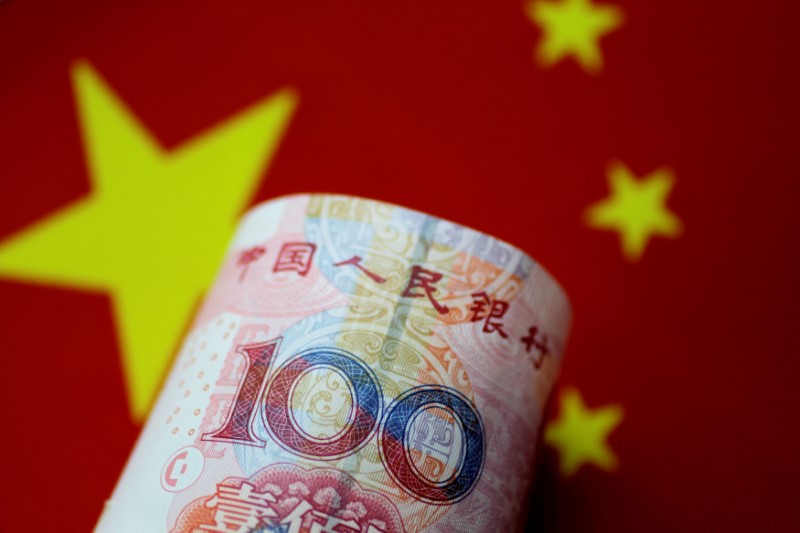Investing.com’s stocks of the week
BEIJING (Reuters) - China's new loans are forecast to have eased in July, though they are still seen staying relatively solid and broad money supply growth may have picked up, a Reuters poll showed, as the central bank sought to step up policy support for the economy amid an escalating trade war.
The trade dispute with the United States, rising corporate borrowing costs, and a steep decline in the value of the yuan versus the dollar have raised concerns that the world's second-largest economy could face a steeper slowdown.
Chinese banks were estimated to have doled out 1.2 trillion yuan ($175.4 billion) in new yuan loans in July, easing from a five-month high of 1.84 trillion yuan in June, according to a Reuters survey of 36 analysts.
But the expected July tally looks solid comparing to 825.5 billion yuan a year earlier. Chinese banks usually make few loans in July after traditionally ramping up lending in June.
Broad M2 money supply was seen rising 8.2 percent in July from a year earlier, accelerating from June's 8 percent rise, which was the lowest on record, according to the poll.
Annual growth of outstanding loans was seen quickening to 12.8 percent in July from 12.7 percent in June.
The People's Bank of China (PBOC) has been pumping out more cash to encourage bank lending but it faces difficulty in channeling credit to small firms, which are vital for economic growth and job creation, analysts said.
State banks remain reluctant to lend to small firms, which are considered riskier than state-controlled firms.
The PBOC has cut banks' reserve requirements three times this year, with the latest reduction on July 5 freeing up 700 billion yuan in liquidity. It also lent a net 905.5 billion yuan to financial institutions via its medium-term lending facility (MLF) in June and July, central bank data showed.
CRACKDOWN ON SHADOW LOANS
A central bank adviser said last week China should limit the credit impact of its financial deleveraging drive, voicing concern that tightening may have gone too far.
Annual growth in China's outstanding total social financing (TFS), which includes off-balance sheet forms of financing, slowed to 9.8 percent in June, the lowest on record, according to central bank data.
Combined trust loans, entrusted loans and undiscounted bankers' acceptances, which are common forms of shadow banking finance, shrank by 1.26 trillion yuan in the first six months, central bank data showed.
Commercial firms remain reluctant to make loans to small firms, which are considered to be riskier than state-owned firms.
China's economic growth slowed slightly to 6.7 percent in the second quarter and July factory surveys pointed to further slowing in activity.
Policy advisers have said that Beijing plans to put more money into infrastructure projects and ease borrowing curbs on local governments to support the slowing economy.
China's central bank is due to release July lending and money supply data between August 10 and 15.
